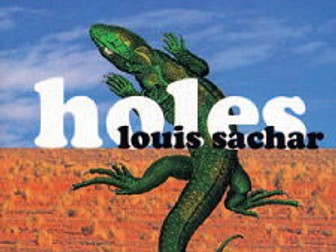Holes by Louis Sachar: whole-class reading unit (or guided reading plan)
<p>*This took me hours to make and I always share my resources for free. However, if you have found this useful and would consider chucking a book my way (I’m trying to collect class sets for my class), I’d really appreciate it! My Amazon wishlist is here: <a href="https://www.amazon.co.uk/hz/wishlist/ls/36JJE26YLGHYC?ref_=wl_share" target="_blank" rel="nofollow">https://www.amazon.co.uk/hz/wishlist/ls/36JJE26YLGHYC?ref_=wl_share</a> *</p>
<p>I’m a big advocate of whole-class reading over the carousel method of guided reading! However this planning could also be used with a small guided reading group.</p>
<p>This is a plan for roughly 6 weeks’ worth of reading lessons (23 sessions - provided you do at least 4 a week. Each session lasts about 30-40 mins). It’s definitely aimed towards Year 6, but could be adapted for a Year 5 class. I have used question starters taken from the 2016 sample SATs paper and real SATs paper to prepare children for the new reading curriculum.</p>
<p>Each week (4 sessions) is based around a different type of question - retrieval, choice, interpret, vocabulary and 3-mark questions.</p>
<p>I’ve included a “3-mark question” in some of the sessions and have based my example answers round the ‘APE’ (answer, prove, explain) style structure.</p>
<p>***It has now become apparent that ‘APE’ is far from a useful method to answer 3-mark SATs style questions. However, I’m going to keep them in the resource as I still think it’s a good way to develop children’s written responses in general. Rhoda Wilson has written an excellent blog here that explains how to write 3-mark responses for SATs: <a href="https://misswilsonsays.wordpress.com/2017/01/15/pee-off/" target="_blank" rel="nofollow">https://misswilsonsays.wordpress.com/2017/01/15/pee-off/</a> ***</p>

